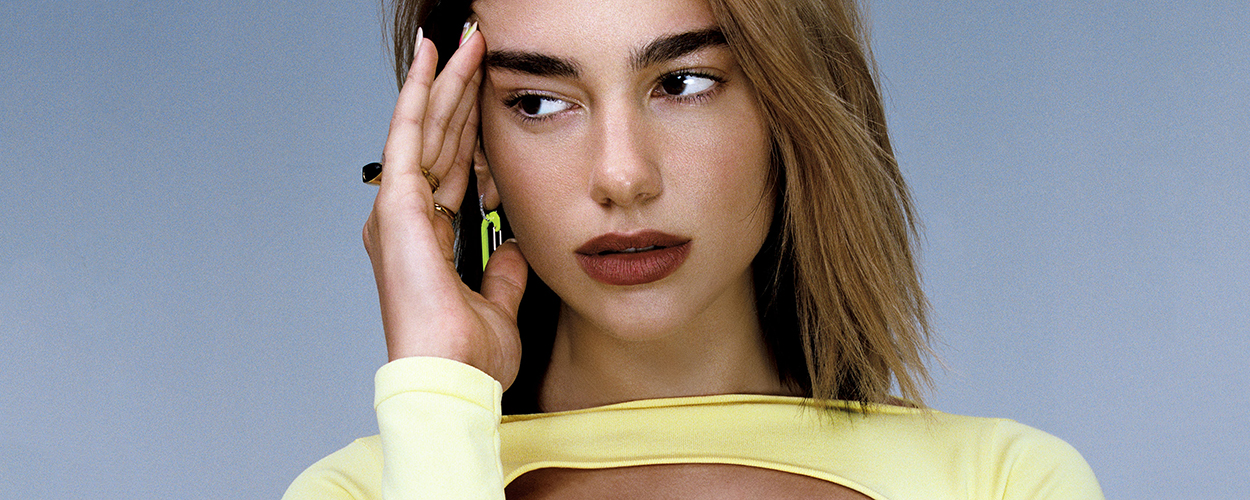This website uses cookies so that we can provide you with the best user experience possible. Cookie information is stored in your browser and performs functions such as recognising you when you return to our website and helping our team to understand which sections of the website you find most interesting and useful.
Artist News Business News Labels & Publishers Legal Top Stories
Dua Lipa lawyer sets out arguments for dismissing Levitating song theft lawsuit
By Chris Cooke | Published on Friday 2 September 2022

Lawyers for Dua Lipa have set out some key arguments for why one of the song theft lawsuits filed in relation to her 2020 hit ‘Levitating’ should be dismissed. Basically there is simply no evidence Dua Lipa and her collaborators had ever heard the two songs they are accused of ripping off.
Because, yes, in the second of two copyright lawsuits targeting ‘Levitating’, plaintiffs L Russell Brown and Sandy Linze claimed that Lipa’s track actually lifted elements from two songs they wrote back in the day: 1979’s ‘Wiggle And Giggle All Night’ and 1980’s ‘Don Diablo’.
But, Lipa’s lawyer Christine Lepera wrote in a letter to the court earlier this week, “the alleged similarities – a descending scale in which each pitch is repeated on evenly spaced notes, and a common clave rhythm – are unprotectable, and the result of the coincidental use of basic musical building blocks”. And, perhaps more importantly, “the ‘Levitating’ writers never heard the [earlier] compositions”.
Of course, to show that one song infringes the copyright in an earlier song, you need to prove that the creators of the later work had access to the earlier work, as well as demonstrate that any similarities are sufficient enough to constitute copyright infringement.
Unless there is solid evidence that the creators of the later song deliberately set out to rip off the earlier song, you need to come up with some kind of hypothesis as to how those creators heard the music they’re accused of nabbing.
If the earlier work is super famous – and therefore widely distributed and known – that’s relatively easy to do. But if it’s not super-famous – and usually in cases like this it isn’t – then claimants need to be more imaginative in their hypothesising.
This usually involves constructing some kind of six degrees of separation style chain within the music industry along which you argue the earlier work must have passed to the creators of the newer track.
Or, if all else fails, you can try the “well, the older tracks were streaming, they probably heard it there” line. Although that latter strategy is increasingly rejected in court because of the vast quantity of music that is streaming.
Lepera runs through the various efforts by Brown and Linze to prove access in her letter, and then pulls each effort apart.
“The complaint fails to allege wide dissemination of ‘Wiggle’ and ‘Don Diablo'”, she writes. “With respect to ‘Wiggle’, the complaint merely alleges it achieved certain success in the Netherlands four decades ago. This does not establish ‘saturation’ and there is no allegation that the songwriters of ‘Levitating’ were in the Netherlands – or, indeed, had even been born – at that time”.
“With respect to ‘Don Diablo'”, she goes on, “the complaint alleges it has been performed at certain times in Latin America; again, these allegations do not establish ‘saturation’ or that the ‘Levitating’ writers participated in the Latin American market at the relevant times”.
What about a six degrees of separation claim? “The complaint fails to plausibly allege a particular chain of events leading to access”, Lepera argues. “Instead, the complaint alleges that ‘Wiggle’ and ‘Don Diablo’ were both ‘published by labels that are now under Sony’s umbrella’, and that one of the publishers of ‘Levitating’ is a Sony-affiliated company, Sony Music Publishing”.
But that’s not really a sufficiently strong connection. And to confirm that is so, Lepera cites some legal precedent as follows: “Bare corporate receipt of [plaintiffs’] work, without any allegation of a nexus between the recipients and the alleged infringers, is insufficient to raise a triable issue of access”.
And finally, “the complaint [also] alleges defendants purportedly had access to ‘Wiggle’ and ‘Don Diablo’ because they both ‘can be found on popular streaming services’. However, there are many millions of musical recordings available on ‘streaming services’, and the mere availability of recordings on those services does not establish wide dissemination”.
So, there you go, the court should dismiss this lawsuit for failing to prove access before even considering if the similarities between ‘Levitating’ and ‘Wiggle And Giggle All Night’ and ‘Don Diablo’ constitute copyright infringement; which, of course, Lepera would argue they do not.
The actual purpose of this week’s letter was to request “a conference in advance of filing [a] motion to dismiss”, with the lawyer noting: “This is relief to which plaintiffs do not consent”.
We await to see how the judge hearing the case responds. Meanwhile, a legal rep for Brown and Linzer told Billboard that they would be submitting a “full rebuttal” to all the statements in Lepera’s letter.
“‘Don Diablo’ has had roughly 20 million listens on YouTube alone with thousands of listeners noting that ‘Levitating’ sounded like ‘Don Diablo’ well before this lawsuit was initiated”, they added. “We look forward to vindicating our clients’ rights in court and for some of these amazing artists of today to properly pay homage to the storied songwriters of the past”.
As noted, this is one of two song theft lawsuits in relation to ‘Levitating’. Florida-based band Artikal Sound System have also gone legal reckoning Lipa’s hit rips off their 2017 track ‘Live Your Life’. We await a formal and, presumably similar, response for Team Lipa on that claim.





